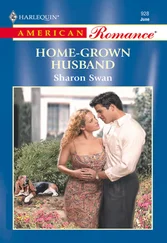Then Catherine looked at me sadly and jerked her head toward the incline. She wanted me out of there. “Not necessarily amnesia,” I said, trying to save myself from inept-ness.
Catherine shrieked, in a voice very much like her mother’s, “Don’t sit there writin’ a essay about it!”
A speedboat rammed up on the rocks beside Mr. Wrag’s feet. It came in almost full blast. It was red and white and greasy. A concerned man scorched by the sun stood in the bow. “Doctor Ainsworth is fishing down in the river,” he shouted, pointing backwards, studying me. He and his buddy in the speedboat had scared the hell out of me. He crouched in the bow ogling Mr. Wrag shyly.
“Well, go get him, you dumb greaser!” I shouted, rising. He stumbled back in the boat, still eyeing my coat and beard as he fell. His buddy reversed the boat, and they blew down the river leaving a swath in the water like the river was jumping apart.
Mrs. Wrag had recovered a bit. “That man wudn’t a nigger. He was a white man with a suntan. He wudn’t a nigger.” She spoke rather carefully at me.
Mr. Wrag woke up. “I’ll kill you … you hawrble bitch. You come down there an’ trip me up, didn you? I’ll see you dead. You seen the fish I had, couldn you see? You come down there an’ trip me up.” He cut his words moistly — some of his teeth were missing — and struggled up toward his wife’s face. She still cradled his head in her arms. He fell back spent, and she looked beyond me cracked open with a smile of purple gums and brown teeth that barked and snapped for glee at the sky. Down the river, I saw the speedboat appear in the bend, wallowing and skipping toward us, with a third man in the, middle.
“You leave,’ said Catherine to me. This was easy to do. As I walked up the incline, I heard her shrieking, like her mother. “Who was you? Who was you? What did you think you was?” I wasn’t certain till I glimpsed back that she was shrieking at me.
In the parking place I leaned on the little new Volkswagen that Peter no doubt had bought for her. In the backseat were some overturned worm boxes. There was also a styro-foam picnic box; but in the driver’s seat there was a teacher’s manual with an Eskimo Pie stick marking the page to which she’d read. Getting ready for those slimy snappers in junior high. Incredibly, she’d graduated.
I looked down the hill and observed the tiny group of them. Royce was sitting up. The red and white speedboat idled and rocked out in the shallows, raising smoke like an old car. The doctor got Royce to his feet, and the four of them began creeping up the rocks. Catherine put her hand to her eyes. She saw me. She brushed her arm back and forth as if dusting me off the hill. I believe I heard her shriek again.
So in July I saw her the last time.
I still think about that — perhaps — two minutes, when I saw her arms slightly sunburned and covered with goose-pimples in the cool wind of the dam; the odd, sudden affection she had for me—“Honey”—and her shoulders in the lab coat draped on her, her hands crossing outside it, her pulling me nearer so I could hear what she said over the sound of the water; my own love for her delicate vulnera-bility reviving instantly, damn near tears. This surprising butterfly of sentiment with both of us — never mind what followed — I remember, even after the disasters, as one of the strangest interludes of my time.
I was absorbed for days in trying to forget the afternoon, forget them all, kick them off. I knew if I thought of it too much more, it would fall around my neck like a noose and hang me.
I had a letter to write. The old man, for one more semester of money. And I had to read the one he wrote back to me, and whatever the sum of the check enclosed, I’d bleed out the whole amount in pennies, nickels, and dimes of misery. Maybe I’d take a job and read books on the job. I had a way to go, had to take it. It seemed to be the last one.
Thinking of the old man, I read the Columbia University bulletin on the wad outside the English office at Hederman-sever. My idea was to return and take the English hours I needed at Heder man sever to get into graduate school. Just slip into a graduate school come January. As for Columbia, I could imagine those mean bastards up there reading Finnegans Wake upside-down and beating you over the head with their pipes. But the old man would be proud of me up there. So I took down the address and some others and went to see the chairman. When school started in September, I’d reread my Bobbie Burns and rediscovered my hatred for Pope and Henry James, and was ready to make the last dash toward a profession.
One day I was reading “The Leech-Gatherer,” stopped, smiled, and realized I’d forgotten Catherine, Peter, and the Wrags for three weeks.
7 / The Old Boys at Mother Rooney’s
This is the fall that Fleece was leading his class as a sophomore at the med school, Silas was still the leading ass on Capitol Street — at Wright’s — and I was accepted in graduate school. It was 1965, the year I got married and the year of a lot else.
Silas had taken a trip to Europe during summer. One thing he had done was force himself into an art class at the Sorbonne. Some group of artists there told him that the West was finished and that they spat on all Old World art because it was elitist. Silas caught a terrible cold in Spain which enabled him to spit on every church, icon, and masterpiece in southern Europe from a range up to twenty feet. This was really Silas’s cookie.
“More to the point, Europe scared the hell out of you, didn’t it?” said Fleece. Silas was thoughtful.
“That’s true.” Silas turned red and took the stairs up to his room.
“You got him,” I said.
“What’s wrong with the bastard? He’s so mild.”
A week or so later, late at night, I saw Silas come down the stairs through my room and slip down to Fleece’s room. I heard Silas waking up Fleece, heard Fleece swearing. Then the light went on down there, and I could hear the low tones. I went to sleep while the tones kept on.
The next afternoon Fleece emerged into my room. I was reading The Ambassadors by Henry James for a report and was just about fainting with boredom. It was Saturday and Silas was gone.
“You want to know what he said to me last night?” I dropped the book. Bobby Dove looked rather feeble and ill. He sat on the bed.
“He woke me up to confess to me that he couldn’t help it, he was in love with Bet. That he’d gone to Europe so as to forget her. He also wanted me to know that she seemed to be falling in love with him. He asked me if she’d told me she had gone out with him, and I said no, I hadn’t talked to her in a week and a half. This was the time he was concerned about. ‘I don’t want to hurt you. I think a lot of you. But she seems to be coming over my way, Bob,’ he said. I asked him why he thought she was falling for him. You know what he said? ‘Because I have changed. I’ve learned to be humble.’ I told him maybe this was the first time he’d ever been pitied by a woman. He’s so sincere looking at me; this tribulating little smile on his mouth. I told him to get out.”
“Did you call her?”
“I’m not going to call her. Sometimes I don’t call her or see her for weeks. Some time ago we found out this made it all sweeter. That maybe it would never wear out if we kept it like so. She knows I always have a lot to do, and always will. What she does in her own time… I wouldn’t be mad if she let the rich jerk-off buy her a couple of suppers. Me, I’ve bought Brenda the X-ray technician coffee more than a few times. But, Bet knows about that silly tool, the things he is, does, like dragging those mousy little drabs up to his room to hear them squeak over him; like bringing that drunk over as a gift to Mother Rooney. And now he says he’s learned to be humble. I’m sure the confession that at last he knows what a dipshit he is bowled her over.” He smirked and stood up, with his hands at the small of his back, refreshed by the irony of it. Let me comment on how Fleece had changed, physically, in the last couple of years. He was twenty-six, was twenty pounds heavier than he was at Heder man sever, was less nervous, and had replaced the horn-rim glasses with some steel ones, which opened up his face, his bald high forehead, so that he looked like a less-cringing genius who would know what to do if, say, a fire broke out in his room. When he was sick, he was more like a healthy man who’d been knocked down temporarily than someone at rest in his natural disposition, as of old.
Читать дальше












